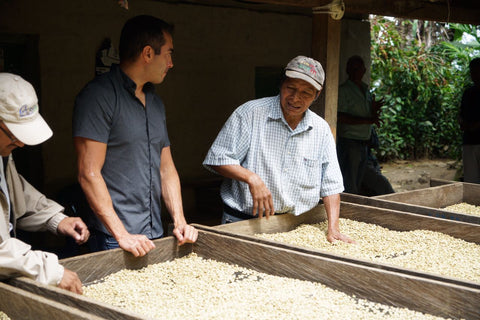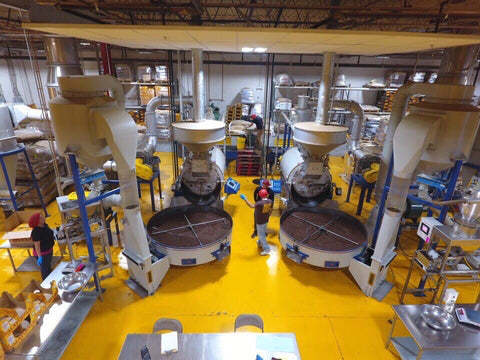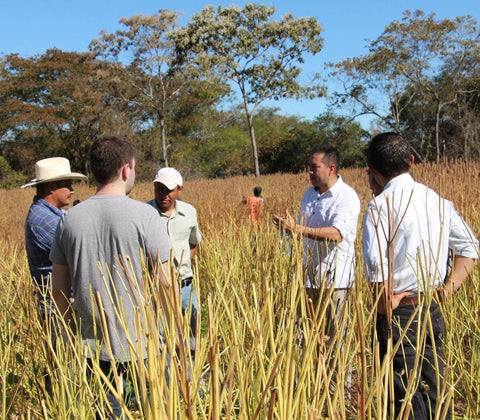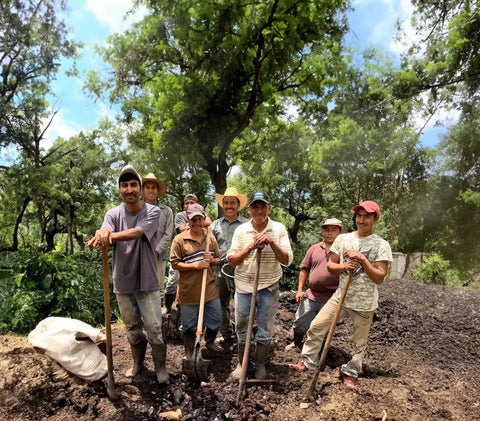Author: Gabriella Oakley for Perfect Daily Grind
MUCH OF the coffee consumed across the globe is produced by coffee cooperatives. In the simplest sense of the word, these can be defined as organised groups of smallholder farmers who work together to leverage their scale.
In larger groups, farmers can improve their access to things like finance and equipment, as well as becoming better equipped to negotiate fair prices that protect them from market fluctuations. On the buyer side, we often see roasters and traders speak directly with cooperatives rather than individual producers, especially when order sizes start to increase.
Ultimately, the more you learn about how coffee cooperatives operate, the more you come to understand the major role they play across the supply chain.

The rise of coffee cooperatives
Coffee cooperatives have played an important role in the development of the coffee industry throughout the 20th and 21st centuries.
In Colombia, for example, cooperatives began to emerge over 60 years ago, largely as an initiative of the National Coffee Growers Federation (FNC) to support the development of producing communities. Today, the country is home to more than 30 cooperatives – between them, they purchase over 30% of all coffee produced in the country combined.
The emergence and rise of cooperatives can also generally be linked to a growing awareness of the need to improve sustainability standards across coffee production. By adopting more environmentally friendly farming methods, and empowering smallholder coffee producers in groups through education, finance, and equipment, we can drive change far more quickly.
Coffee cooperatives have also changed how coffee is sold. In the early parts of the 20th century, many smallholder farmers would sell their entire harvests to large, international coffee companies. In many cases, these companies would – and still do – purchase generic batches, with little or no differentiation in price for different degrees of quality.
As such, one of the most important impacts of coffee cooperatives has been their ability to enable small-scale farmers to enjoy improved access as well as a higher return on investment.
How do coffee cooperatives work?
Coffee cooperatives vary in size, but essentially, they all work on a similar principle: small, independent producers join forces to improve their access to resources, equipment, and buyers.
There are often caveats: some cooperatives charge annual membership fees, while some require members to abide by set standards and rules.
Pedro Romero is a founding member of the Capucas Coffee Cooperative in Honduras, which works with Mayorga Coffee and other major roasters in Latin America. It was established in 1999 with just 25 members but now boasts 900 from all over Honduras.
“It’s considered to be a model cooperative in the country,” Pedro explains. “The driving force behind setting up the cooperative was recognising the need for us to work together.”
He says that much of Capucas’ success has been thanks to its ability to give producers access to various globally-recognised certification schemes, such as Fair Trade, Rainforest Alliance, and organic certification. Realistically, he adds, this would be impossible for smallholders to achieve individually.
For him, the cooperative empowers its members. Together, he says they’ve been able to achieve premiums of “up to 10% higher than the usual prices”.
He adds that Capucas also has a focus on innovation and sustainability. The cooperative supports a number of environmental and agricultural projects, including organic fertiliser production, the reuse of coffee husks and dried fruit, and the production of tomatoes.
It also boasts its own quality lab, which helps to identify high-quality coffee, creating more transparency for buyers and giving farmers far more information to work with.

Why are cooperatives so appealing for smallholders?
Max Pérez is a fourth generation coffee farmer from Guatemala and the founder of the Cooperativa La Hermosa – another partner of Mayorga Coffee – which is based in the Acatenango Valley. He says that in many cases, this is largely because they are more inclusive.
“They get the best prices for small producers and they are democratic, sharing the work and the decision-making,” he explains.
For roasters, as well as providing an easier entry point to buy coffee directly, cooperatives make delivering impact in coffee-growing countries more effective. Mayorga Coffee’s primary purpose is “to eliminate systemic poverty in Latin America through responsible trade of artisanal organic foods”, and cooperatives play an important role in this mission.
The cooperative movement has, however, suffered some difficulties in recent years. In Colombia, recent price hikes on the C market have led some of the country’s cooperatives to default on futures contracts. In total, losses have amounted to around US $120 million.
Many cooperatives have been left in financial difficulty as a result, with some even facing liquidation; this has severe consequences for thousands of producers.
Cooperatives also need to be run efficiently and justly to have any sort of positive impact. A significant number of Kenya’s 22,000 cooperatives stand accused of corruption and stagnation, and many young farmers are shifting to looser collective-based models instead.
In Ethiopia, cooperatives fall under the umbrella of the Ethiopia Commodities Exchange, and some roasters claim that the process of buying from it is far too time-consuming.
But for both Max and Pedro, at least, the benefits of the cooperative model outweigh any observable difficulties. Pedro describes how the Capucas cooperative even organises its own local coffee tasting competition.
“It is like our own Cup of Excellence,” he says. “We get to know each other and we get to know each other’s success, and that is a big benefit for us.”
Ultimately, Max predicts that cooperatives will continue to grow – in part because of the difficulties faced by large companies over the last few years due to covid and global economic events.
“Many large farms in Guatemala have gone bankrupt, and they are divided into smaller farms to sell,” he concludes. “These smaller farms are then likely to join cooperatives.”










